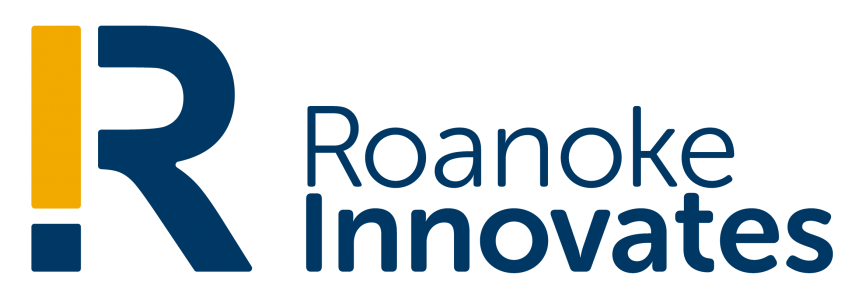Digital innovations are advancing human health, longevity, and productivity – but could it come at a cost?
Faced with unprecedented access to information, people are experiencing a growing lack of attention, emotional regulation, decision-making, and creativity – according to world-renowned neuroscientist, Adam Gazzaley.
“In many ways we are ancient brains living in a modern world,” said Gazzaley, who is the David Dolby Distinguished Professor in Neurology, Physiology and Psychiatry at University of California, San Francisco.
“My goal is to flip this story around, with modern technology as a tool to improve cognitive control abilities, refine our behavior, and elevate our minds.”
Gazzaley, an accomplished entrepreneur, professor, author, and investor, will present the “Cognition Crisis: Perils and Promise of Technology and the Brain” during the Maury Strauss Distinguished Public Lecture on Thursday, Feb. 27 at 5:30 p.m. at the Fralin Biomedical Research Institute at VTC.
Gazzaley is the founder and executive director of Neuroscape, a brain research center that develops new technologies to help people struggling with mental focus, memory loss, and cognitive functions.
Working alongside neuroscientists and video-gaming experts, Gazzaley develops new brain assessment and optimization tools, including video games integrated with brain-computer interfaces, virtual and augmented reality, and motion capture.
Multiple research studies suggest that Gazzaley’s novel approach works to enhance attention and memory in older adults. In a landmark 2013 study published in Nature, Gazzaley showed that older adults who trained with a custom-designed video game were able to improve their multi-tasking ability to levels that exceeded 20-year-olds.
The research participants’ electroencephalography (EEG) scans showed the increase in skills corresponded with increased activity in the prefrontal cortex, part of the brain responsible for cognitive control.
“Dr. Gazzaley has contributed mightily to the development of a nexus between technology and medical interventions under a category of care called ‘digital medicine,’” said Michael Friedlander, executive director of the Fralin Biomedical Research Institute and vice president for health sciences and technology at Virginia Tech. “He has provided exciting new insights into the applications of custom-designed video games to assess cognitive abilities across the lifespan, evaluate underlying neural mechanisms, and serve as a potential powerful tool for cognitive enhancement.”
Gazzaley will explore how modern technology has challenged our brains and will describe an approach to achieve meaningful and sustainable cognitive enhancement via personalized, adaptive, and interactive experiences.
“We need to be creative and future-thinking to address this grand challenge of enhancing cognition, so that we can improve the quality of our lives and effectively manage the many other crises that we humans are facing,” Gazzaley said.
Gazzaley is the co-founder and chief science advisor of Akili Interactive, a company developing therapeutic video games, and Sensync, a company creating the first Sensory Immersion Vessel. He is also co-founder and chief scientist of JAZZ Venture Partners, a venture capital firm investing in experiential technology to improve human performance.
Additionally, he has been a scientific advisor for more than a dozen companies, including Apple, GE, Nielsen, Deloitte, Magic Leap, and the VOID, as well as the President’s Council on Fitness, Sports & Nutrition.
Gazzaley has filed multiple patents for his inventions, authored more than 140 scientific articles, and has delivered more than 675 invited presentations around the world. His research and perspectives have been consistently profiled in high-impact media, such as The New York Times, New York Times Magazine, New Yorker, Wall Street Journal, TIME, Discover, Wired, PBS, NPR, CNN and NBC Nightly News.
He wrote and hosted the nationally televised PBS special “The Distracted Mind with Dr. Adam Gazzaley,” and co-authored the MIT Press book: “The Distracted Mind: Ancient Brains in a High-Tech World.” He was winner of the 2017 PROSE Award in the Biomedicine and Neuroscience category, and has received many awards and honors, including the Society for Neuroscience Science Educator Award.
Gazzaley completed a doctor of medicine degree, and a doctorate in neuroscience, at the Mount Sinai School of Medicine in New York. He completed a neurology residency at the University of Pennsylvania, and postdoctoral training in cognitive neuroscience at the University of California, Berkeley.
Gazzaley began his medical career as a neurologist at the Northern California VA Medical Center and the University of California San Francisco Medical Center.
The public seminar, named for Maury Strauss, a Roanoke businessman and longtime community benefactor, begins at 5 p.m. with a reception at 2 Riverside Circle, Roanoke, followed by the hour-long lecture starting at 5:30 p.m. Maury Strauss Distinguished Public Lectures are webcast live, archived on YouTube, and streamed on Facebook Live.

